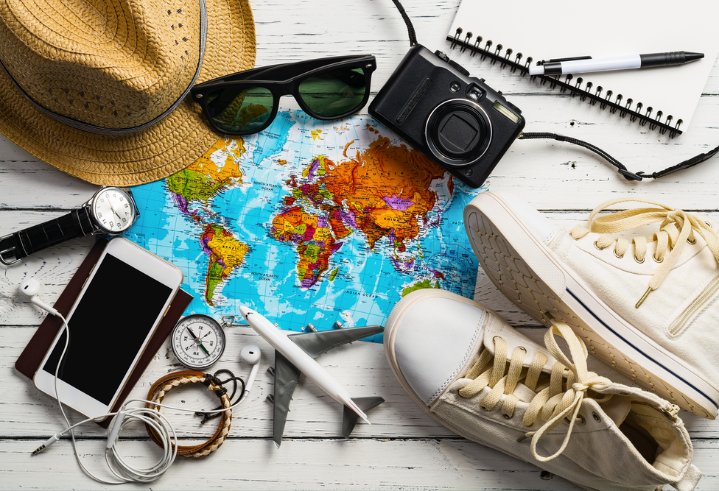Can travel boost your career?

With over 20% of young Australians choosing to travel overseas between finishing high school and starting university, the overseas experience is still gaining in popularity. Overseas travel is not limited to our youngsters, each year there are a number of more mature Australians hanging up their work uniforms and setting off in search of the globetrotting life.
Catching the travel bug is great and there is no doubt that the life experience travel gives you is character building, but it could have an impact on your career. There’s a lot to consider before you make the big decision; you need to think about finance, companions, destinations and safety, but don’t forget that your future is also important. We hope that the points below will help you find a way to make sure that your trip will enhance your career prospects.
Still not sure what to do if university isn't in your immediate cards? Check out our course list, or get some more guidance with this article.
Travelling and Your Career: When you should go
There is no doubt that a qualification is a requirement for many careers and offers a boost for others. We tend to think of the time between high school and further study as being a traditional time for travel. For some young people, travel provides an excellent opportunity to inform their decisions about future education. You might for example, travel to Africa and decide that you are interested in studying sustainable development. The people you meet as you travel are also likely to have an impact on your opinions about your future.
You can always travel knowing that your continuing education is an option.
Some people worry about the impact that travelling before studying might have on academic results. However research shows that taking a gap year had a positive influence on results for students in Australia and the UK.
If you choose to study before travelling and don’t want to wait until retirement, there are other options.

Gap Year vs After Studying
There is an argument for travelling when you are young. You are still likely to be free of ties like mortgages, careers and children. Also, we tend to be more flexible and accommodating when we are younger. Another point to consider is that there are a variety of young person’s travel discounts and work-visa deals out there that you won’t be able to take advantage of when you are older.
However, you should bear in mind that the number of graduates seeking employment is high. You need to be clear in your mind that what you are going to achieve whilst you are travelling will outweigh the work experience that those who go straight into employment will gain.
Employers do not generally frown upon the idea of travel for their employees but many organisations (particularly smaller ones) find it difficult to cover the costs incurred by training and employing temporary replacement staff.
One option is to take a career gap, i.e. to give up one job and find another when you have finished travelling. One thing you need to be sure of if you are going to take this option is that you will be able to obtain a good reference when you return. Give your current employer time to get used to the idea of you leaving, and maintain your professionalism. You never know, they might offer you a sabbatical to make sure that you come back again.
It is always worth asking employers about the possibility of a sabbatical, i.e. unpaid time off a job to go travelling. Some larger organisations have regular schemes set up, but be warned, this is not a question to ask at interview, wait until you are regarded as a valuable employee and then ask around the office for advice.
Why You Should Go
Most employers will agree that travel can give you an impressive set of life-skills. We have summed up a few that will stand you in good stead in the work place:
- Time Management: Whether you are booking a flight to the other side of the world or a trip around Sydney Harbour, time management skills will be vital to your travel experience. The ability to read a timetable and ensure that you don’t miss your transport will ensure that you are also able to get to work on time.
- People Skills: Even if you travel alone, you will find yourself communicating in ways and with people that will take you out of your normal comfort zone. Add to this the possibility that you will be communicating in a language that is not your own and you have an excellent recipe for improved people skills.
As you travel, your understanding of other cultures will increase, as will your team working ability. Most employers see people skills to be a priority.
- Self-Confidence: As you travel, you will have to make decisions and solve problems in new and probably exciting ways. You will learn to operate well under pressure and to deal with stress. Once you return to your every-day life, you will be able to say, ‘I dealt with that, so I can deal with this.’ Showing self-confidence at interview can make you stand out from the other candidates.

Experiences Can Enhance Your CV
Building a strong CV is vital to your career. Your past and future experiences will stay with you for life. Prospective employers do not like to see unexplained gaps on a CV. That doesn’t mean that you shouldn’t take time off for travel. There are ways that you undertake your travel that will enhance rather than detract from your CV.
Many people choose to work whilst they are overseas. This is usually for financial reasons but working abroad will reduce the gap in your CV and could raise it to the top of the pile with your varied work experience. If you are under 30, there are many countries that offer a 12-month ‘Working Holiday Visa’ arrangement. If you are older, things become more difficult, but not impossible. Contact the immigration departments of countries that you would like to visit to find out more; most western countries operate a points system and have shortage skills lists.
One popular way to earn money whilst travelling is to teach English as a foreign language. The best way to do this is to gain a TEFL or similar qualification before you leave. Shop around because there are lots of courses on offer. It may also be possible to study whilst you are overseas, but be aware that this is likely to be more expensive.
If you are unable to or don’t want to work for an employer whilst overseas, volunteering is a great alternative. Some employers specifically look for experience as a volunteer when they are reviewing applications, most will see it as a positive.
Our work patterns are becoming progressively globalised. This means that even without work or voluntary experience, travelling can be a great time to make sure you learn some key 21st Century job skills.
There are a wealth of skills that you can learn online and may even to be able to make money from whilst you are travelling. Design, website creation and blog writing would be key examples. Build up a portfolio that shows a creative use of these skills and you may well find that instead of a gap on your CV, you have a sought-after skill.
One key skill in our globalised world would be to learn a language. There is no better way to do this than to immerse yourself in a country and its culture. The top five spoken languages are Mandarin, Spanish, English, Hindi and Arabic. These offer plenty of opportunity for travel to a variety of locations.

When considering travelling, it’s important to remember that a gap year does not necessarily need to represent a gap in your CV. Choose carefully and you could be enhancing your career in ways that your stay-at-home colleagues won’t be. With careful timing, reasoning and planning your travel experiences will, at the very least, give you some interesting experiences to discuss during interview. At the most, they could get you that job that you’ve always wanted.
Good luck and happy travels.


)
)

